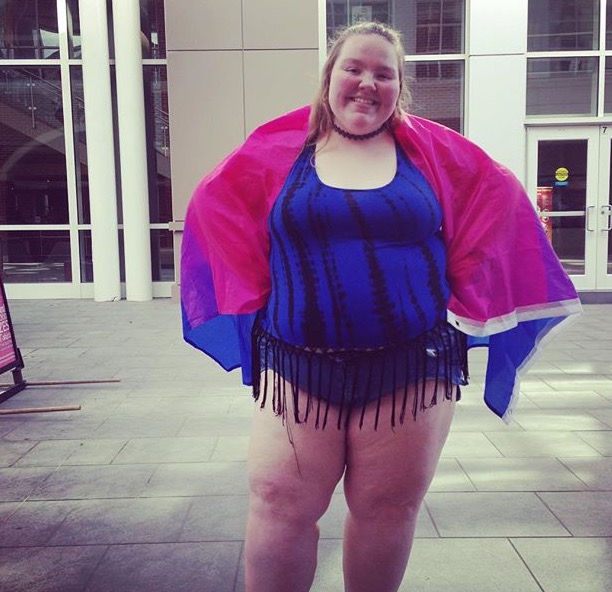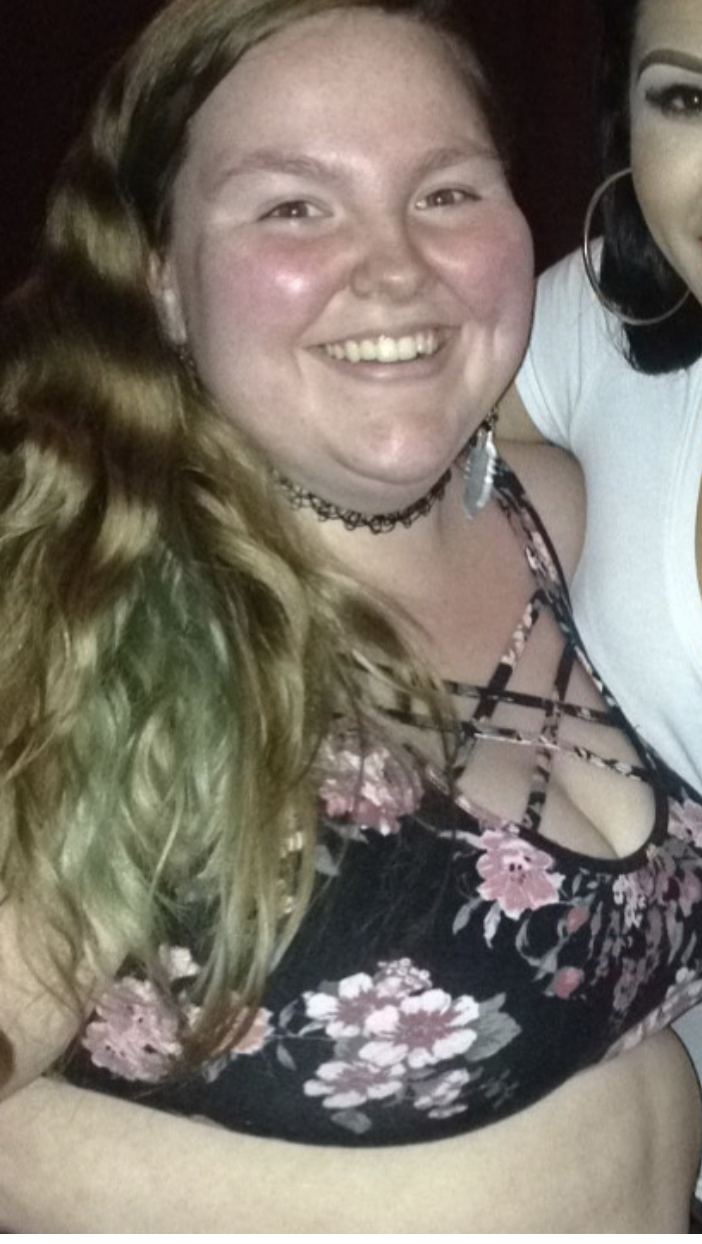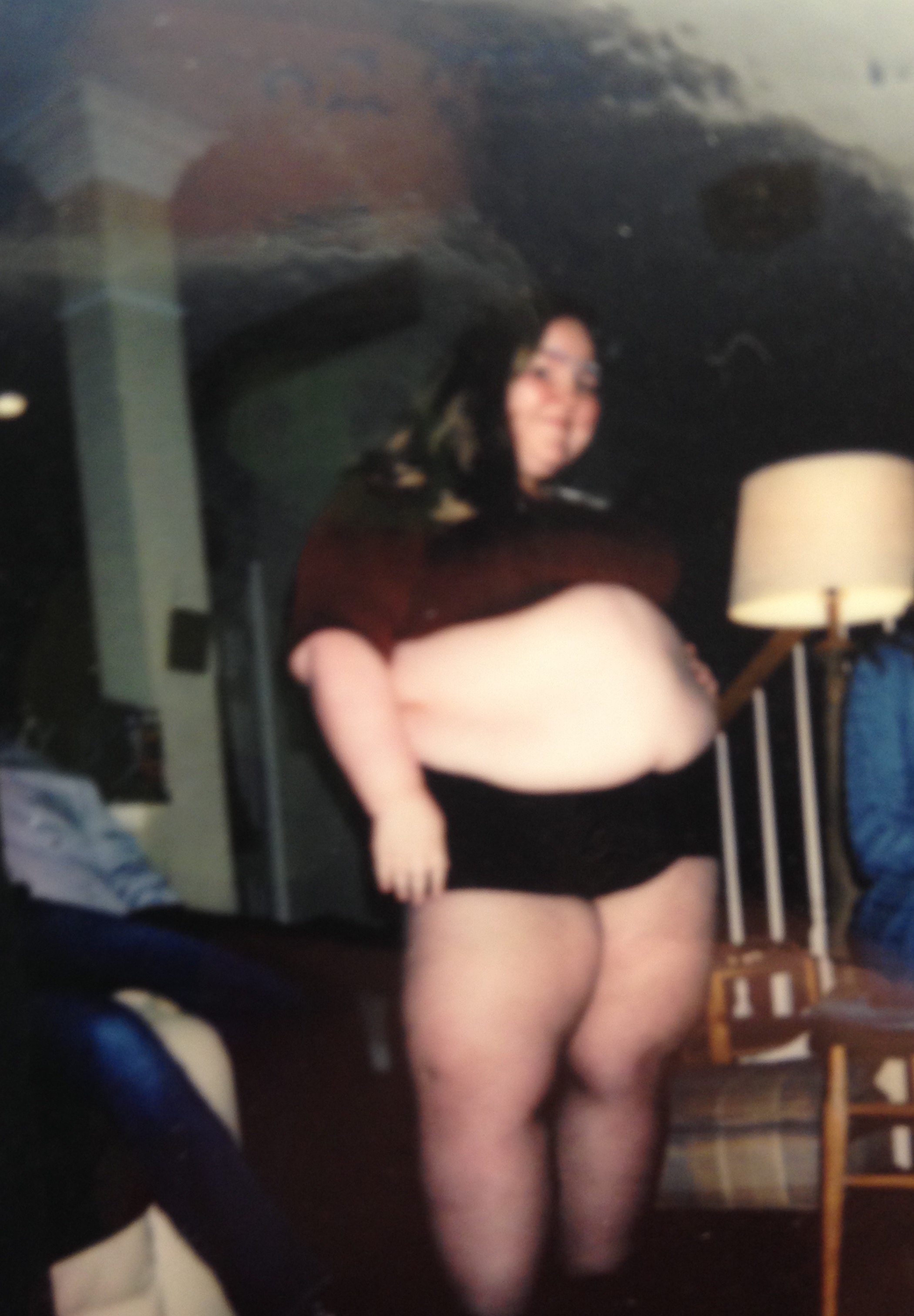Carson Leigh Pender, Winthrop University
CONTENT WARNING: This is a narrative piece on a rhetorically traumatic experience with a college writing center’s dress code and issues of embedded professionalism. Some of the content in this story may be potentially triggering for some readers due to fatphobia, heteronormativity, and erasure.
***
There is value in stories because the personal experiences of others puts theory and analysis into practice. Stories can be used as reflection, and invites the reader into a real life situation. University of Central Florida Writing Center director R. Mark Hall claims, “Through critical reflection, theories and decisions remain open to inspection, evaluation, and revision…[however] reflection [has] two problems…the audience is typically limited to the student and the writing center director…[and] underlying reflection is the assumption that one has an informed critical framework…for [considering] tutoring practices” (82).  At one point, my theories, reflection, and decisions were only viewed by my director and myself. However, the deeper value in my storytelling comes from my ability to share a story that is frustrating, disappointing, and sad with other directors, tutors, and administration in an attempt to reach the very heart of what writing center work is about: helping others and creating a safe student space. My story is certainly unique, and offers a personal narrative that takes up an important space in the conversations surrounding clothing and professionalism in writing centers. In the following story, I will share emotionally difficult content pertaining to fatphobia, the result of continuous misogynistic and traumatic rhetoric, and some snippets of happiness and growth coming from my situation. My hope for directors who read this story is that they will wrestle with its contents, analyze the internalized prejudice, and think more consciously about how they approach the students who work in their center. I want the reader to see how blindly we sometimes follow ideas that need challenging. Above all, I am asking for deep and thorough critical thinking. I am asking for readers to work on their own understandings of empathy. My experience is very specific to my writing center, and I can say that we are currently in transition between directors, cultures, and overall structure. The names in this story have been changed.
At one point, my theories, reflection, and decisions were only viewed by my director and myself. However, the deeper value in my storytelling comes from my ability to share a story that is frustrating, disappointing, and sad with other directors, tutors, and administration in an attempt to reach the very heart of what writing center work is about: helping others and creating a safe student space. My story is certainly unique, and offers a personal narrative that takes up an important space in the conversations surrounding clothing and professionalism in writing centers. In the following story, I will share emotionally difficult content pertaining to fatphobia, the result of continuous misogynistic and traumatic rhetoric, and some snippets of happiness and growth coming from my situation. My hope for directors who read this story is that they will wrestle with its contents, analyze the internalized prejudice, and think more consciously about how they approach the students who work in their center. I want the reader to see how blindly we sometimes follow ideas that need challenging. Above all, I am asking for deep and thorough critical thinking. I am asking for readers to work on their own understandings of empathy. My experience is very specific to my writing center, and I can say that we are currently in transition between directors, cultures, and overall structure. The names in this story have been changed.
In introducing my role in the center, I will start by saying how my role in being part of the administration, unlike the tutors, puts me in an awkward spot. I am a senior English major and women’s and gender studies minor. My being an English major and working at the Writing Center gives me a large role in the department as a majority of my time is spent with other English majors and the faculty. I am constantly interacting with other professors, and I am recognizable to many students who frequent our department and writing center. The fall of 2018 will start my third year of being a receptionist, which is a work study position. Often, receptionists are not included in the overall culture of my writing center because they are not hired by the director, do not spend as much time in the Center, and do not have to be knowledgeable in the same work as the tutors, but still play a huge role in the Center community. However, I have studied to be a tutor.

I identify as a white, bisexual, cisnder, fat woman. These identities are always intersecting in every space that I am in, and each are sometimes more present. My body is the most visible of these identities, making it the forefront of much of my activism. I am subject to looks, unsolicited comments and faux concerns about health, and bias. I am often hyper-feminine in dress, which can invite presumptive comments about my gender expression and purpose as a feminist. Since I am straight passing, heteronormativity is common when addressing me and my assumed romantic interests. I am always aware that others are noticing my body, my clothing, and my expression. This recognition will take up a majority of my narrative.
***
March, 2017.
During our first conversation, Sandie complimented my earrings. She said they matched my dress, though moments before that conversation, I was not sure if I should have introduced myself. I was working as an office assistant in the English Department Office that day. I was alone. I felt a nervous energy as she glided to my desk to engage in conversation. Something about esteemed professionals in my department makes me feel apprehensive, if not small, at times. I introduced myself, and I knew she would know who I was because a friend I had made in the Center told her about me. I was the new receptionist with decent interpersonal skills and a passion for wanting some recognition as a part of the staff. I’m not sure she ever considered receptionists to be a part of our Writing Center culture until I started working there.
The first semester that I worked in the Center, she was on medical leave. The absence of our Writing Center matriarch seemed catastrophic to a carefully constructed establishment in the heart of an idealistic and sentimental English department. She seemed like a gentle woman, and warm. Writing Center work is often seen as wholesome. When I first started working as a receptionist in the center, I was introduced to a graduate assistant who taught me everything I needed to know about my job; but he didn’t show me the Operations Manual. I didn’t know we had one, and I didn’t know that the department hired a new rhetoric and composition professor, Temp, who would become the temporary director of the Writing Center while Sandie was on medical leave. The Operations Manual is very specific to my Writing Center as it was written by Sandie. It is thirteen pages in length, and contains procedures for what to do during tutorials, when a tutor will not be coming in, and outlined general Writing Center policies. This book contained important information on Sandie’s definition of professional behavior, and more importantly, major safety measures that I was not aware of. However, I didn’t know any of that. This information was not accessible to me as it was for the tutors.
 I wore a bra to work one day. A black polyester bralette that would always ride up in the back. The way the flowers stretch across the fabric, vine to vine, and the strips of fabric cage my cleavage makes me feel feminine and powerful. When I wear clothes that reveal the excessiveness of my fat body, I feel like I am in control of what parts of my body I’m letting someone see. I can control my own image and aesthetic by wearing an outfit that threatens conventional standards of fashion. My shorts were black, short, and showed my favorite parts of my body: my legs. On the day I came into the Writing Center wearing this outfit, I was considerate and conservative enough to at least wear a cardigan over my bra.
I wore a bra to work one day. A black polyester bralette that would always ride up in the back. The way the flowers stretch across the fabric, vine to vine, and the strips of fabric cage my cleavage makes me feel feminine and powerful. When I wear clothes that reveal the excessiveness of my fat body, I feel like I am in control of what parts of my body I’m letting someone see. I can control my own image and aesthetic by wearing an outfit that threatens conventional standards of fashion. My shorts were black, short, and showed my favorite parts of my body: my legs. On the day I came into the Writing Center wearing this outfit, I was considerate and conservative enough to at least wear a cardigan over my bra.
A few days later, Sandie informed me that “someone” said I was wearing a shirt that was “too short.” She mentioned to me that the dress code was in the Operations Manual. “An Operations Manual?”, I thought, “Since when?” And right there, in black and white, number one in a list of rules that were…sometimes followed, “Tutors and receptionists are expected to dress appropriately when on duty. Remember that your first impression to students could be long lasting and also that you represent the Center, an academic unit. We hope to be seen as professionals. Do NOT wear very tight or revealing clothing to work.” I was having flashbacks to a time where a graduate assistant sternly told me that the Writing Center was a “professional establishment” when an intern and I were just a few decimals too enthusiastic for his tastes.“Why didn’t anyone tell me we had a…dress code?” I wasn’t understanding how I could have gone an entire year, two directors, an assistant director, and several graduate assistants and tutors before knowing we even had an Operations Manual. Sandie never told those girls in Nike shorts and equally short denim shorts that their clothes were too tight or revealing. This was a body issue. In Annie Bahra Ramanpreet’s article, “‘You can only be happy if you’re thin!’ Normalcy, Happiness, and the Lacking Body,” she covers the ways that the fat body veers from normal aesthetics. Women can only gain happiness and privilege in clothing that has traditionally been made for skinny women when they are indeed skinny themselves. As long as my body took up space in the Center, it had to be covered in ways that thin bodies did not. I couldn’t believe that, for the first time since high school, I had been dress coded. Sandie tried to reassure me by saying, “I worry about the males who walk in…I just don’t want anyone to get the impression that you don’t care about the Center because I know that you do.” I never wore that bra in the Center again.
By not having knowledge of a Writing Center Operations Manual, I was excluded from the general culture of the Center. This is a form of unprofessionalism because I was unaware of important institutional materials. This exclusion further separates the receptionists from the tutors and keeps them from attaining the same level of knowledge about running the Center. The receptionists are not always given the same materials as the tutors, and their knowledge about the Center may not be as broad as the tutors. A director cannot have secret expectations for unaware students. I received my own copy later on, but until then, I only knew of the Center copy. My status as a work study student made my presence separate from the tutors who were hand-picked by Sandie specifically, and there was an underlying assumption that I was there by the unfortunate fate of my socioeconomic class. I showed respect towards Sandie’s wish and did not return in a crop top, but I still did not know how to approach “tight and revealing” as almost all of my clothing is tight and revealing. Everyone around me also wore similar clothing but because their body did not take up the same amount of space in their clothes, they did not always appear to be wearing “tight and revealing” clothing. Furthermore, a traditionally gendered role such as a secretary or receptionist was supposed to make me the target of objectification and scrutiny. I was just uncomfortable with being told that my clothing deviated from my concern and passion for writing center work. I felt that my self-expression had been revoked. My pink flowers and their vines were trimmed at the stem to be kept in a vase in Sandie’s office, in her head, in her heart. But never in the Center.
I need you, the reader, to know that my discomfort was never just about not being able to wear festival outfits to my job. Something didn’t feel right about the entire interaction. As an empath, I am constantly soaking up others emotions and energies. I knew I would be on guard. I knew Sandie wouldn’t stop talking about my clothing. The vagueness of the dress code policy made me constantly look at my clothing and decide whether it would be discussed or not. I knew there would be outfits that were silently judged or approved of. This is why it is important to be clear and thorough when considering and creating policies. A detailed dress code (or none at all) would have kept me from questioning the appropriateness of every outfit.
August-October, 2017.

The summer heat soaked into my skin and pulled the sweat from my pores down my forehead. South Carolina air in the summertime is suffocating, and the fabric of my clothes stick to my skin and become a part of me. A blanket for my skin that sops the sweat, dirt, and remnants of my days. I try to wear as little clothing as possible to avoid the stickiness. It was time to return to the Center. Sandie came with the announcement of her retirement at the end of the year. Temp came with the announcement of her duty of becoming the new director for the fall of 2018. Some would see Temp as the replacement. Our two new assistant directors came with hopes of working together to continue the environment that was created by our last assistant director. I came with burgundy midi shorts that were pulled so far up they were reaching my brain, a faded black halter top, and a hope that nobody would say anything to me about one of the only outfits I could wear to stand the heat. The Center is in an old building that was once a girls’ dormitory, and the air circulation can be fickle. Nobody said anything to me for two weeks. On a Saturday afternoon in early September, the entire staff of the Writing Center, my entire tutoring class, and I received an email from Sandie that said, “…Please remember that we want to present a professional atmosphere…the graduate assistants have the right to ask you to lower your voice or to refrain from unprofessional conversations (i.e., talking about other tutors, students or professors).”
I decided to speak with Sandie personally since I was nervous about the way she viewed me as a receptionist and student. I went to her office, sat down with her, and said, “I’m scared that you think I don’t care about the Writing Center…” After all, she did imply before that my clothing can be a direct correlation to my concern for the Center. She stood from her chair, went to close the door and said, “The only thing I’m really concerned about is your clothing…” I was overwhelmed with frustration. I explained to her that I could not afford new clothes, and that I wore the clothes that I wore because they made me feel comfortable and confident. She suggested that I wear something that made me feel comfortable while also following the dress code. I left her office that day, in tears, and wishing that she would be more clear in her expectations going forward, more fair when considering the clothing choices of not just me, but everyone in the Center, more compassionate, and think more critically about what her goal is.
I only had a few conversations with Temp before I started realizing that I could trust her. I learned that she defended me after Sandie told me about the dress code. She offered her mentorship to me, and I took it. I told her that I had a conversation with Sandie, and I wasn’t entirely heard. I finally felt for once like I wasn’t entirely self-justifying or coming up with outlandish ideas about why Sandie was so obsessed with creating an environment of color-blindness, wholesomeness, and empowerment at the expense of oppressive systems of power. I needed Temp to be a permanent fixture in my Writing Center life.
The scariest Halloween experience I’ve had was receiving my mid-semester report on my progress as an intern in my tutoring class. The report was in a memorandum format that stated, “I can [see] you’re trying to [adhere to] the dress code, but your efforts are inconsistent.” In all honesty, I wasn’t trying to adhere to the dress code. It was just getting cooler outside.
***

This emphasis on the professionalism in the Writing Center raised important questions for me in terms of what Sandie meant by professionalism. The term “professionalism” is often defined as the expression and performance of status to improve wealth and conditions. The result of the term “professionalism” is often racial, sexual, and salary based oppression. Renata Baptista writes in her article, “Critical Reflections on the Rules of ‘Professionalism,’” “The markers of “professionalism”, the way that people speak, dress, and interact, are all deeply based in hegemonic systems of oppression that were intended to distinguish between those who belong and those who don’t. At its core, the concept of “professionalism” is as much about dictating behavior and appearance as it is about exclusion” (Baptista, ACPA). A writing center that is mostly run by college students who are working for experience and to make ends meet is not always concerned with “professionalism,” but efficiency. The tutors in the Writing Center are concerned with students coming in, receiving proper and thorough help, and improving their writing skills. Receptionists are concerned with managing the arrival of tuttees, excess issues with appointments, and taking phone calls. There is plenty to be said for all of the hours of overtime that I worked and affected the labor of the tutors who were busy with tuttees and could not complete their tasks. But I did it because I loved it. Was this email really about inappropriate conversations, weird faculty overseers, or a segue into a conversation about my body and clothing?
In the book Oppression and the Body: Roots, Resistance, and Resolutions, Lucia Bennett Leighton discusses Merlin Frye’s explanation of conceptualized oppression. Frye claims that “conceptualized oppression [is] a means of immobilizing a group of people and reducing their options for behavior while also requiring complicit compliance to this limitation and immobilization” (43). The pervasiveness of the ideas of professionalism in the Center perpetuate classist ideas since the label and labor of receptionists and tutors differs vastly. We are all paid the same amount per hour, but work study students traditionally come from families with financial need, work more hours than the tutors, and are treated differently in the context of the Center. A lot of these issues were class-based because I really, honestly, did not have the money to buy new clothing. I also do not have family that can buy me a new wardrobe. Furthermore, the clothing that I can afford does not consist of business casual or traditionally professional styles. Sandie, a self-proclaimed feminist, has asked us to create an empowered space with equality and fair-mindedness while still feeding into minority oppressions. Furthermore, her fixation on my clothing suggested anti-feminist rhetoric. Women who have been victims of oppression often project that oppression onto others as a way of coping with the trauma of that oppression. When women are subject to patriarchal violence, they often relay those violent messages to other women to keep them in the same limitations. This can be said for writing center work because writing centers are often female-dominated. In my particular situation, the receptionist position puts women in a sensitive spot because of women’s historical place in secretarial positions that are viewed as trivial. That sensitivity and violence can be internalized and projected into the work environment. Sandie was the point of this projection, which then impacted the way many tutors saw me and each other. Receptionists (or secretaries) can often be viewed as objects since their labor is used for the purposes of efficiency. They are there to make the job easier for the people above them-in this case, the receptionists are only there to alleviate the tutors’ of the added stress of answering the phone, making appointments, etc. Because of this objectification, these roles are often unappreciated. The tutors are seen as a community and a group of people giving back to the campus by providing their services to students struggling with their writing, but the receptionists are seen as workers present only to serve the greater Center community. When tutors are wearing something like a collegiate t-shirt and Nike shorts, they are viewed as comfortable and even wholesome because they are mirroring the dress of the students who frequent the Center. When I wear shorts, I am disobeying my role as a worker and as someone who is “on display,” if you will, at the front desk. It is crucial to constantly check your own internalized sexism, racism, fatphobia, etc. before it exudes within your writing center.
***
On the first day of the semester, January 8, 2018, I was fired from my job as a receptionist for reasons pertaining to my dress and assumed lack of professionalism. I was fired, through email, with no warning and no conversation with Sandie to follow up. It really never occured to me that I had a right to go to Human Resources, or the Dean, or any higher up besides Sandie and the department chair. I’ve mentioned feeling excluded because I did not have access to the Operations Manual, that I was told other faculty members were complaining about my presence, and that my class work, which critiqued writing center dress code policy, was not well received by students and Writing Center staff. All of these issues, collectively, interfered with my rights as a worker to speak to someone about why I was fired, what steps I could take, and how I could potentially fight the situation, which all led to me feeling helpless like I did not have control over what was being done. I lost and was lost.
I have had several types of recourse since this situation. I have spoken with Sandie since being fired, I’ve talked with several other faculty members, and overall, I’m in the process of preparing to go back into this environment despite this experience. Of course, I often get questions about how this situation should be handled or what a director can do to avoid/maneuver these situations in the future. I do have some suggestions on how to handle bodies, gender, and clothing in writing centers.

To begin with, recognizing an aesthetic or style that is vastly different from our own is highly uncomfortable. We all have a voice inside of our heads that feeds problematic rhetoric when we’re faced with something we find physically different, even uncomfortable. You may feel this way about what the students on your campus are wearing, even the students in your center. Remember that every single piece of clothing and/or every modification we have on our body was chosen with a personal purpose. Many young adults, myself included, are very concerned with how they look and the message they want to send with their physical appearance. Make sure you are encouraging healthy self-expression and body positivity in your center! A strong sense of community within writing spaces will be visible to the outside community, which will strengthen the rapport between tutors and students. Students will be more comfortable sharing their personal writing if they sense that everyone in the writing center is dedicated to their job and dedicated to these interpersonal relationships. You can build that community and encourage body positivity by emphasizing the importance of self-care and mental health. When our mental health is good, our confidence is good. When we are taking a break and taking time to understand and take care of ourselves, we will be more self-aware and secure people. Academia is stressful, and trying to find yourself while finding time to go to work, complete assignments, and become an adult can be a source of mental and emotional turmoil. Your students need to feel that their presence matters, and their individuality is respected. Create and encourage open dialogue about identity and bodies. Which bodies are represented the most in your center? How do the different personalities interact? Do any students feel unsafe, and do they trust you enough to have a conversation with you if they do feel unsafe? These practices and this level of trust takes time to build, but it needs to be genuine. Many of your students may have a variety of intersecting identities, and you need to make sure those identities are recognized.
References
Baptista, Renata. (2015, April 9). Critical reflections on the rules of ‘Professionalism.’ ACPA, www.acpa.org, accessed 19 August 2018.
Hall, R. Mark. (2011). Theory in/to practice: Using dialogic reflection to develop a writing center community of practice. The Writing Center Journal, 31(1), 82–105.
Johnson, Rae. (2018). Fable of Faubus. Oppression and the Body: Roots, Resistance, and Resolutions. Christine Caldwell and Lucia Bennett Leighton, Eds. Berkeley, CA: North Atlantic Books.
Leighton, Lucia Bennett. (2018). The rrauma of oppression: A somatic perspective.Oppression and the Body: Roots, Resistance, and Resolutions. Christine Caldwell and Lucia Bennett Leighton, Eds. Berkeley, CA: North Atlantic Books.
Ramanpreet, Annie Bahra. (2017). ‘You can only be happy if you’re thin’: Normalcy, happiness, and the lacking body. Fat Studies, 7(2), 1.